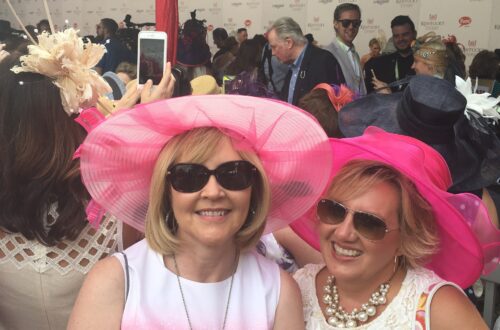
“Listening is often the only thing needed to help someone.” ~ Unknown
Listening is a crucial skill to hone in all areas of life and things we do, both personally and professionally.
TODAY’S WORD IS LISTENING
In solution-focused practice, listening is a critical component of the therapeutic relationship, and the ability to be a “think partner” to the client alongside you. Listening for what’s important to him/her, what areas they’re having success in that you can build upon, and listening for challenges and concerns they may have. With limited time to spend with a client and guidelines or recommendations deemed important to deliver, it can be easy to forget the human aspect, that the client before you is a person too (read our previous blog post about Being Human here). They may be stressed, overwhelmed, angry, grieving, etc. and looking for support and someone to help them find solutions, rather than receive a list of marching orders.
A real world example
Along those lines, an acquaintance of Tami’s recounted a recent interaction at a cardiologist’s office. This acquaintance who we’ll call Carol had developed heart arrhythmia and was sent by her primary care provider to a cardiologist to be placed on a holter monitor for a month to determine exactly what was going on. Carol arrived at one of the large health system campuses having no idea that it would take her 45 minutes of walking to get from her car to the actual office in the hospital complex (coming in contact with more people that she’d come in contact with since the pandemic began!). She finally arrived at her destination, anxious, stressed, and short of breath, to be whisked in a room, connected to and handed the holter monitor, verbally given numerous instructions, and sent back out the door. She shared with Tami that she felt totally overwhelmed when she left, she wasn’t sure exactly what to do, and was extremely frustrated and scared. It seemed that she was “just another number to get in and out of the office”. That human touch had somehow been lost. She felt as if she was just a “problem” to be “fixed.”There was no listening to her concerns or real opportunity for questions. That said, granted, there are many positive healthcare interactions where listening IS a core part of the interaction, however, this scenario struck us as a timely reminder that in many it is NOT.
Listening can transform interactions
Over the last couple of years we’ve shared a variety of tips, techniques, and approaches to embrace and employ a solution-focused approach to practice (rather than one focused on “fixing problems.”) Some solution-focused techniques may seem simple…such as encouraging more listening. That seems simple. However there is a strategy in place. When listening from a solution-focused perspective, you listen in the present state while trying to co-create conversations to help your client visualize their ideal future state, and move in that direction. It means looking for cues and clues to identify strengths. Practitioners call solution-focused discussions the “language of change.” When acting as the “think partner”, the practitioner listens for the clients words and meanings that are focused on change. Once identified, the clients own words are then used to move towards generating solution-focused change. Every answer requires continued listening and is another opportunity to identify a potential move towards solutions. It is simply not possible to implement a solution-focused practice without heightened listening skills.
EACH WEEK WE INVITE READERS TO PARTICIPATE IN A SOLUTION-FOCUSED CHALLENGE… This week, we encourage you to actively focus on listening before speaking with clients. Your conversations will be different than focusing on diagnosing and treating problems.
- Ensure each meeting with a client is focused on their concerns and what is important to them.
- Listen for clues and cues that highlight exceptions, current resources and strengths the client identifies. Maybe open the conversation with a simple question, such as, “What’s been going on in your world?” It’s broad, enables the client to take the conversation where they wish, and can provide insight into other aspects and impacts in their life.
- As the conversation evolves, use the clients own language to help the client envision their preferred future
We welcome anyone interested in our approach to Subscribe to our blog and we’ll email you when a new post is published!
If you are a health care professional and interested in learning more about our solution-focused practice and approach, when you subscribe to our blog, we’ll send you in return a FREE resource of 10 Solution-Focused Questions to start a solution-focused discussion with your clients.
Follow us on Twitter and Instagram @AFreshPOVforYou
Deb is an employee of Dexcom but all comments are her own.





